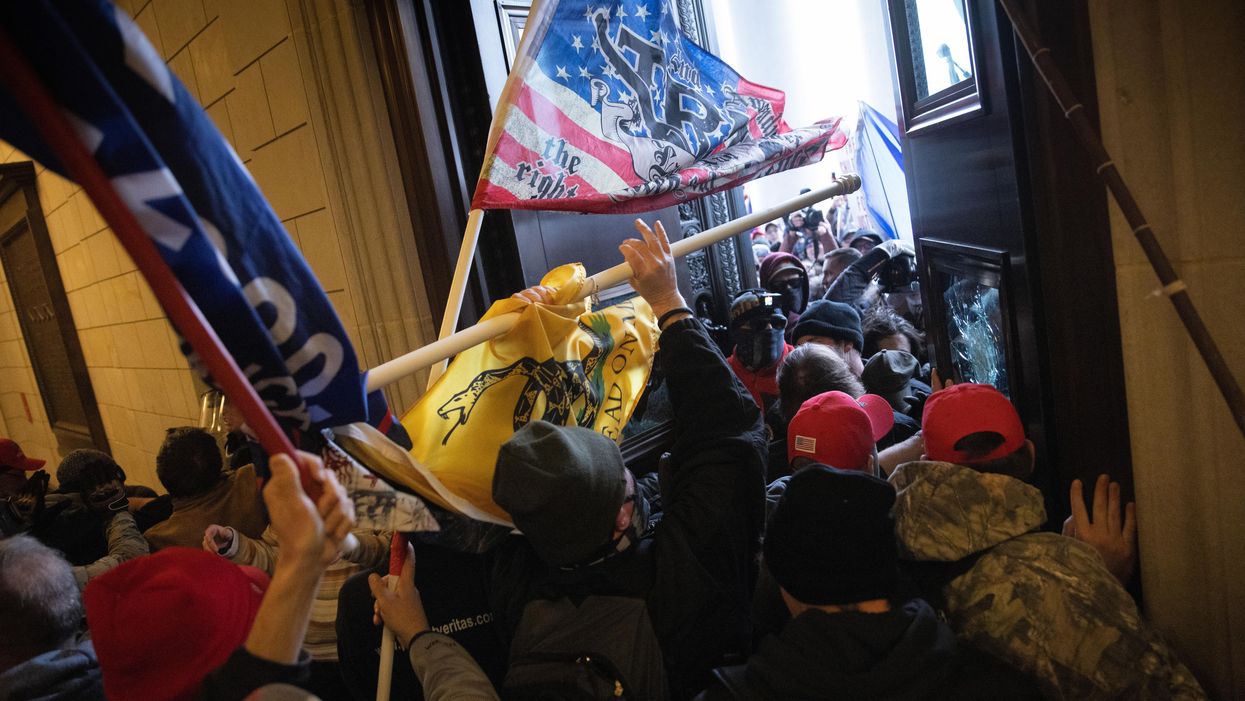From the moment a pro-Trump rally turned into an anti-democracy riot at the U.S. Capitol on Wednesday, we have heard the repeated use of terms like sedition and insurrection. But as we know, words matter.
So The Fulcrum asked Doron Kalir, clinical professor of law at Cleveland State University's Cleveland-Marshall College of Law, to help turn legal definitions into language everyone can understand.
Sedition
"In essence, sedition occurs whenever two or more people conspire to overthrow or destroy by force the government of the United States, or to oppose by force its authority. The criminal prohibition against sedition appears in 18 U.S.C. (U.S. Code) § 2384, and carries a penalty of up to 20-year imprisonment. Interestingly, the law contains specific language against conspiracies to use force in order to 'seize, take, or possess any property of the United States contrary to the authority' of the government."
Insurrection
"An insurrection occurs whenever an organized and armed uprising takes place against the authority of the United States. The criminal prohibition against insurrection can be found in 18 U.S.C § 2383, which states that 'whoever incites, sets on foot, assists, or engages in any rebellion or insurrection against the authority of the United States ... or give aid or comfort thereto' shall be subject to up to 10 years in prison. Interestingly, the act adds that that person shall also be "incapable of holding any [Federal] office."
Treason
"Treason is the offense of attempting to overthrow the government of the United States, either by making war against it or by materially supporting its enemies. The criminal prohibition against treason can be found in the U.S. Constitution, Art. III § 3 ('Treason against the United States, shall consist only in levying War against them, or in adhering to their Enemies, giving them Aid and Comfort.'). According to U.S.C. § 2381, treason can be punishable by death, and in any event no less than five years' imprisonment. Again, a person convicted of treason cannot serve in public (federal) office."
25th Amendment
"The 25th Amendment of the U.S. Constitution was ratified in 1967. It was adopted in part due to lessons learned following the Kennedy assassination. The amendment has four parts, the last of which is of interest today. It allows the vice president, together with a majority of the Cabinet members, to author a 'written declaration (attesting) that the President is unable to discharge the powers and duties of his office.' When such a letter is sent to the House and the Senate, 'the Vice President shall immediately assume the powers and duties of the office as Acting President.' The section continues to explain what happens afterwards, but due to the short time that remains for the current administration, that is likely moot. That section of the 25th Amendment has never been used, and no vice president has ever been declared an 'Acting President.' Again, to trigger this section, a majority of Cabinet members — all of whom are nominated by the sitting president — have to agree to declare him as 'unable to discharge' his duties. That is not likely to happen anytime soon."
Other terms that have been used — like banana republic, coup, and putsch — may be fun to say but have no legal definition.




















Trump & Hegseth gave Mark Kelly a huge 2028 gift